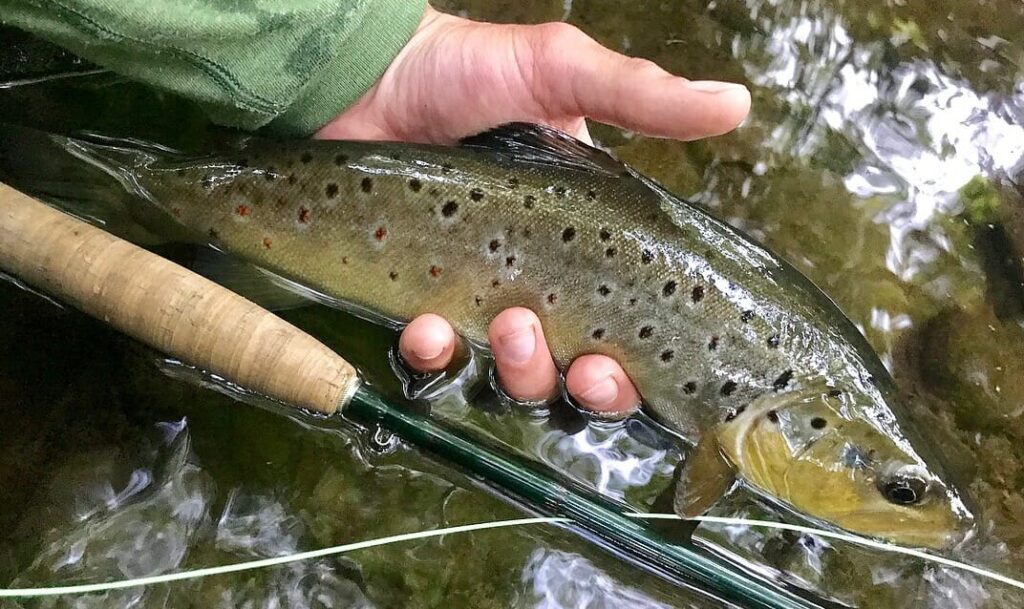By Rob Shane
Pennsylvania’s trout fisheries were on the receiving end of two conservation wins recently.
The first is passage of legislation that will pump much needed revenue into the Pennsylvania Fish and Boat Commission’s coffers.
The second is the long-awaited release of the 2020-2024 Draft Trout Stream Management Plan.
Over the past 16 years, the Pennsylvania Fish and Boat Commission has not been able to implement a fishing license fee increase despite operating costs consistently rising over that time. Like many of our nation’s fish and game agencies, PFBC receives no money from the general fund, receiving almost all its revenue from usage fees, license and federal funding based on license sales.
Any fee increases from PFBC and the Pennsylvania Game Commission had to be approved by the state Legislature and signed into law by the governor. Because of this, we’ve seen multiple sessions pass by with fee increase legislation getting stuck in committees, becoming politicized or stalling out because “it wasn’t the right time.”

Thankfully, the wait is finally over. After a few speed bumps, and a year-long wait, Act 56 of 2020 was enacted into use Bill 808 law on July 10. Starting in 2021, PFBC will be able to set its own fees for three years, at which time the Legislature can elect to retake control or allow full autonomy into the future.
The price of a fishing license in Pennsylvania, currently $22.90 for an annual license for Pennsylvania residents, will rise in small increments over three years, eventually topping out in 2025 at $27 for in-state residents and $58 for out of state anglers for a one-year license.
The Pennsylvania Council of Trout Unlimited (PATU) and TU staff, with vocal support from many TU members, have worked closely with the Commission and legislators to see this landmark achievement across the finish line. TU would like to specifically thank the prime sponsor, Rep. Tom Mahaffie, and other members of the House Game and Fisheries Committee for championing this legislation.
PFBC also unveiled their Draft Trout Stream Management Plan for the next five years, which includes impressive commitments to wild trout conservation and clean water.
PATU’s Trout Management Committee was encouraged to see a few of the core objectives of the committee addressed in the plan.
- By 2022, PFBC will eliminate stocking of brook trout in watersheds where wild brook trout are present.
- Cooperative nurseries will no longer receive brook trout fingerlings from PFBC.
- All cooperative nurseries and other groups that stock fish in PA waters must obtain a stocking authorization from PFBC, which will go a long way in limiting the spread of invasive species, such as gill lice.
- Substantial reductions in the production of brook trout at state run hatcheries.
- PFBC is increasing its investment in the Unassessed Waters Initiative, setting a goal of 2,500 streams surveyed by the end of 2024 which will increase the number of streams that receive increased protection from development.
- Maintaining, improving, and increasing public access to trout fisheries.
- Aggressive and thorough mitigation efforts to combat climate change on our wild trout fisheries, particularly native brook trout.
- Increased efforts to improve instream habitat and riparian buffers on wild trout waters.
These are substantial steps forward for wild trout management in Pennsylvania. However, we are disappointed to see the Commission plans to continue stocking trout over Class A populations in 13 stream sections, such as Bald Eagle Creek near State College and Little Lehigh Creek near Allentown. PATU also made strong recommendations to PFBC to increase transparency on its stocking decisions, particularly the Stocked Trout Allocation System, to enable public accountability in priority streams.
The draft plan will go before the Commission for a vote at the July 20 meeting and will be implemented before the end of the year, according to PFBC staff.



